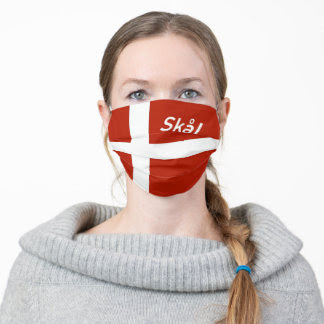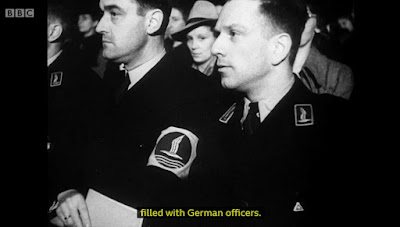09:00 Lois and I both feel a little achy today so we postpone our usual Saturday shower. One of the great things about being a lockdown couple is that you can be as filthy as you like for a couple of days and nobody cares, which is nice!
10:30 We think about the next meeting of our U3A Danish group, fixed for October 8th – my late mother’s birthday: she would have been 101 – yikes!
As usual I email out to members a summary of the pages of our Danish crime novel, Anna Grue’s “The Further You Fall”, the ones that we managed to read through and translate this last Thursday.
Anna Grue, whose Danish crime novel “The Further You Fall” is our Danish group’s current project
Lois and I debate whether the next group meeting should be face-to-face, because the local U3A has amended its guidance. We don’t want to meet in the garden, however – today the top temperature will be only 55F/13C – brrrrr! And windy with it!!!! Brrr (again) !!!!!
For indoor meetings, the official guidance says:
"The interest group host must carry out a Covid-19 risk assessment that demonstrates it use can meet social distancing and hygiene recommendations within the private dwelling.
• To reduce the
risk of catching or spreading coronavirus, try to keep at least 2 metres away
from people you do not live with
• Where you cannot
stay 2 metres apart you should stay more than 1 metre apart, as well as taking
extra steps to stay safe. For example: -wear a face [sic] unless you are exempt
– make sure rooms are well ventilated by keeping windows and doors open.”
We toy with the idea, but we realise that it’s not realistic for us all to stay 2 metres away from each other in our little living-room – 2 metres is 6 ft 6 inches, if anybody doesn’t know, and our living room is only 12 ft by 15 ft.
The guidance says you can also decide to stay 1 meter distant from other members, but if you do this they recommend you wear a mask.
For a couple of minutes we wonder whether wearing a mask would make us sound more authentically Danish – the usual analogy for Danish speakers is that they sound like they have a hot potato in their mouths. But in the end we decide that Skype, in spite of all the extraneous noises Skype treats us to, will probably make it easier to communicate with each other after all.
typical Danish national flag face-masks - say "Cheers!" with this one and it comes out "Skål!"
11:30 We take the car for a 10-mile round trip to Bishops Cleeve
and back, to keep the battery ticking over. We cruise along the main shopping
street where we used to rub shoulders with all the other old crows. We envious
seeing the younger crows having a drink at one of the pavement cafés. We get
back home safely.
We keep a register of our car trips on the back of the front door, so that we don’t leave the car idle too long – simples!
12:30 Lunch, after which we spend the afternoon in bed.
Bernard, a quiet Dutchman who has struggled with shyness all his
life, has somehow developed some unique way of conducting, that perfectly communicates
his feelings about the music to his orchestras, using just his facial
expressions and gentle hand movements. It’s quite amazing to watch – and he
achieves this effect by poring over the score beforehand, then working with the
musicians, always encouraging them,
never shouting. He seems to be surrounded by a total air of serenity whenever he’s
on the podium. What a man!
As a boy, he went to concerts regularly in Amsterdam, during World War II. His violin teacher told Bernard’s parents it was essential for his development as a musician. He said it was a bit frightening, sitting in half-empty concert halls with lots of the seats taken by German officers and their wives. No music by Jewish or “enemy” composers was allowed during the German occupation, so he didn’t hear, for example, any Russian or French music until after the war.
He rose to be a prominent conductor at quite an early age. But Lois and I didn’t know that it was the Hungarian Uprising of 1956 in Budapest that gave him his big break. Amsterdam’s Concertgebouw Orchestra were due to perform the rarely heard requiem by Luigi Cherubini, but at the last minute the conductor, Carlo Maria Giulini, pulled out. In desperation they turned to a young 27-year-old who’d only done 3 public concerts in his life with his Amsterdam Radio Orchestra, but one of them had featured Cherubini’s Requiem. The mood at the concert, which became dedicated to the Hungarian victims of the uprising, was sombre, and there was no applause at the end, as Haitink himself requested.
There’s a side of him we don’t know, however, and it hasn’t really come out in the programme so far. He’s on his fourth wife, for instance – “he’s been through four women” as Lois puts it! But we’ll have to wait for another evening to see the rest of the profile.
22:00 We go to bed – zzzzzzzzzz!!!!














No comments:
Post a Comment